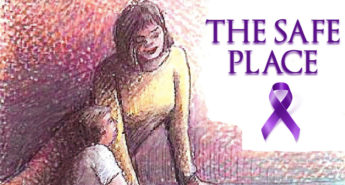 Summer is here, and for a lot of kids, that means more time online playing games, watching videos, chatting with friends, and maybe even making new ones. It might seem like harmless fun, and in many cases it is. But the internet isn’t a playground with fences and lifeguards. It’s more like a giant city, some cool places to hang out, and some places you don’t want your kid wandering into alone.
Summer is here, and for a lot of kids, that means more time online playing games, watching videos, chatting with friends, and maybe even making new ones. It might seem like harmless fun, and in many cases it is. But the internet isn’t a playground with fences and lifeguards. It’s more like a giant city, some cool places to hang out, and some places you don’t want your kid wandering into alone.
Here’s the deal, most parents already know to warn kids about not sharing their address or not talking to strangers. But what about the stuff no one really talks about?
Let’s start with emotional manipulation. That’s a big one. There are people out there who slowly build trust with kids online, sometimes over weeks or even months. They don’t come right out and say anything creepy. They act like a friend. They tell the kid things like “Your parents don’t get you, but I do.” That’s grooming, and it’s sneaky.
Then there’s the issue of content that messes with your kid’s head. Not just violent stuff or adult content, but things that seem harmless at first. Some videos start out funny or cool, but take a weird, dark turn that can be disturbing. Some creators talk about things like suicide, self-harm, or hatred in a way that pulls kids in. It’s subtle, but it sticks.
What’s even trickier? The way apps and games are built to keep kids hooked. That “one more video” feeling? It’s not random. Algorithms are designed to give your kid more of what they react to. And if your kid is feeling anxious, lonely, or insecure, those feelings can get worse the longer they scroll.
So what do you do if you’re not a tech expert?
You don’t need to know how to code or understand every app. You just need to be curious. Sit down with your kid and ask them to show you what they’re into. Not in a judgmental way. Just “Hey, can you show me that game you keep talking about?” Let them be the expert for a minute. That opens the door for real conversation.
And don’t just focus on the dangers. Talk about why they like what they’re doing online. What makes it fun? What makes them feel weird? What kind of people have they run into? These talks don’t need to be formal. Start one in the car. Ask a question while you’re doing dishes. Keep it low-pressure.
Also, let your kids know it’s okay to tell you stuff, even if it’s weird or scary or embarrassing. If they think they’ll get in trouble, they won’t tell you when something goes wrong.
One last thing: don’t rely only on parental controls or monitoring apps. Those tools can help, sure, but they won’t replace your involvement. The best filter is a kid who knows how to spot something sketchy and feels safe coming to you when they do.
Summer is supposed to be fun and free, but a little awareness goes a long way when your kid is surfing the wild world of the internet.
www.create-learn.us/blog/internet-safety-tips-for-kids/




Leave a Reply